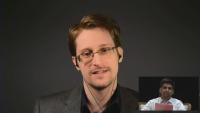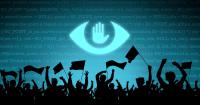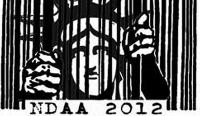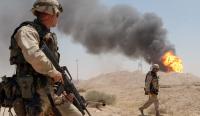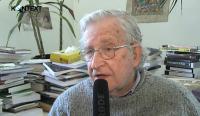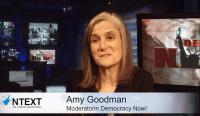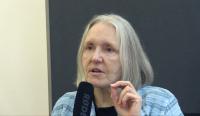Interview with Edward Snowden at the Event "Freedom and Democracy" at Muffathalle, Munich (Germany), on January 15, 2017. The event was organzied by AcTVism Munich, Kontext TV being a cooperating partner.
Edward Snowden, whistleblower and civil rights activist, former CIA and NSA employee
Whistleblower Edward Snowden speaks about the history of abuses of US intelligence services, beginning with the COINTELPRO program of the FBI in the 1960s and 70s, which was directed against civil rights movements and its leaders like Martin Luther King Jr. Snowden also speaks about the influence of earlier whistleblowers like Chelsea Manning and William Binney on his decision to publish the NSA papers in the way he did. Snowden stresses the moral necessity of civil disobedience against the abuse of state power and the responsibility of every citizen to save democracy. The interview, hosted by Zain Raza from AcTVism Munich, has been recorded at the Event "Freedom and Democracy" at Muffathalle, Munich, on January 15, 2017. Kontext TV is a cooperating partner.
"Liberty is the right to act without permission", says Edward Snowden in part two of the extensive interview. He speaks about pervasive surveillance programs such as PRISM and about government officials including US presidents who never get punished for their wrongdoing. "Faith in elected leaders to fix our problems", Snowden continues, "is the mistake that we keep repeating. If we are waiting for a hero we will be waiting forever", he remarks referring to ex-President Obama who expanded mass surveillance in spite of promises to the contrary. Not only the US are legalizing mass surveillance; in the UK "the most extreme surveillance law in the history of the modern world", the "Investigatory Powers Act", was recently passed with the support of Theresa May. Russia and China also have passed draconic legislation. "Words are changing their meaning": more and more often, social protest and even journalism is labelled as "terrorism" by state agencies and prosecuted with authoritarian means. But there is hope in the fact that opposition to power abuse cannot be shut down in the long. "The conversation cannot be stopped". Asked about his current life, he concludes: "I wake up every morning and smile, glad for the decisions I took".
